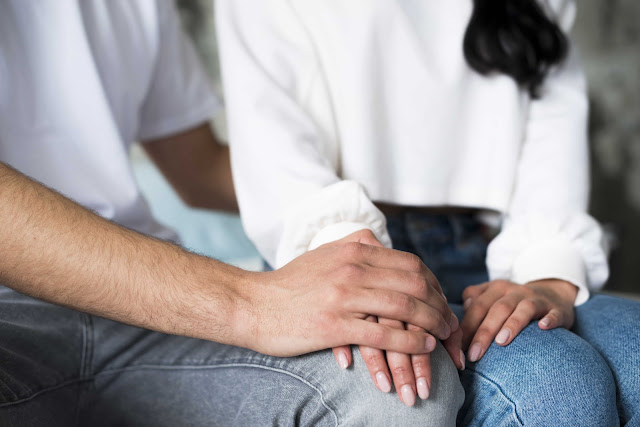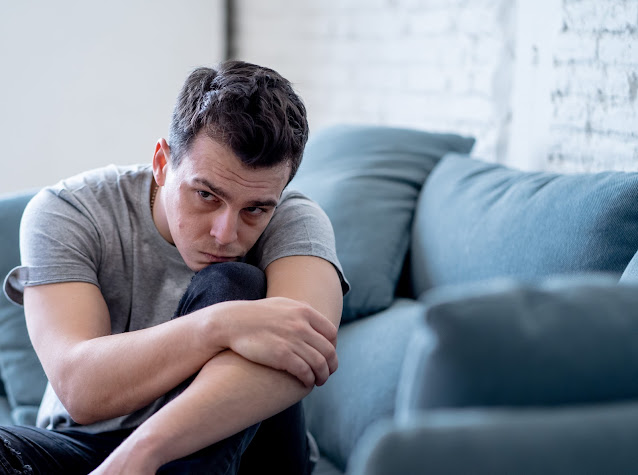The Relationship Between Anxiety and Depression: Understanding the Connection
Anxiety and depression are two of the most common mental health disorders affecting millions of people worldwide. They are often interconnected and co-occur in individuals. While they share some similarities, they also have some key differences. Understanding the relationship between anxiety and depression is crucial in identifying and managing these mental health conditions. If you're looking for anxiety or depression therapy in SanJose, there are resources available to help.
What is Anxiety?
Anxiety is a feeling of worry, nervousness, or unease about
something with an uncertain outcome. It is a normal human emotion that we all
experience from time to time, but when it becomes excessive, it can interfere
with daily activities and lead to an anxiety disorder. Some common types of
anxiety disorders include Generalized Anxiety Disorder (GAD), Panic Disorder,
Social Anxiety Disorder, and Specific Phobias.
What is Depression?
Depression is a mood disorder that affects a person's
thoughts, feelings, and behavior. It is characterized by persistent feelings of
sadness, hopelessness, and loss of interest in activities that were once enjoyable.
Depression can range from mild to severe, and it can interfere with daily life,
making it difficult to work, study, or even carry out routine activities.
The Relationship Between Anxiety and Depression
Anxiety and depression often occur together and can have a
negative impact on a person's quality of life. In fact, research has shown that
up to 60% of people with anxiety disorders also experience symptoms ofdepression, and vice versa. The exact reason for this link is not entirely
clear, but some studies suggest that it may be due to shared genetic,
biological, and environmental factors.
For example, people who have a family history of anxiety or
depression may be more likely to develop either disorder. Similarly, imbalances
in certain chemicals in the brain, such as serotonin, may play a role in both
anxiety and depression.
In addition, stressful life events, such as a traumatic
experience, can trigger both anxiety and depression. For example, someone who
has experienced a natural disaster may develop symptoms of both anxiety and
depression due to the trauma they have experienced.
Managing Anxiety and Depression
Managing anxiety and depression often involves a combination
of medication, therapy, and lifestyle changes. In some cases, medication may be
prescribed to help reduce symptoms of anxiety and depression. Therapy, such as
cognitive-behavioral therapy (CBT), can help people learn how to manage their
thoughts, feelings, and behaviors in a more positive way.
If you're looking for anxiety or depression therapy in San
Jose, there are resources available to help. Seeking out a licensed therapist
who specializes in anxiety and depression can be a crucial step in managing
these mental health conditions. Therapy can help individuals learn coping
strategies, develop self-care routines, and work through underlying issues that
may be contributing to their anxiety or depression.
Lifestyle changes, such as getting regular exercise, eating
a healthy diet, and getting enough sleep, can also be beneficial in managing
anxiety and depression. Practicing relaxation techniques, such as deep breathing
and mindfulness, can also help to reduce stress and improve overall mental
health.
Conclusion
In conclusion, anxiety and depression are two mental health
conditions that often occur together and can have a negative impact on a
person's quality of life. Understanding the relationship between anxiety and
depression is crucial in identifying and managing these mental health
conditions. If you're looking for depression or anxiety therapy in San Jose,
seek out a licensed therapist who can help you develop an appropriate treatment
plan. With proper treatment and support, it is possible to manage anxiety and
depression and improve overall mental health.
https://www.atoallinks.com/2023/is-loneliness-affecting-my-mental-wellbeing/
https://www.rapid-medical.com/profile/depressiontherapy/profile
https://www.ayanatherapy.com/profile/anxietytherapy/profile
https://www.marriagetherapycharlotte.com/profile/coupletherapy/profile
https://www.studentsagainstchildmarriage.org/profile/trustmentalhealth/profile
https://trustmentalhealth.mystrikingly.com/
https://www.theblackgirldoctor.com/profile/anxietytherapy/profile
https://www.teensgrowgreens.org/profile/therapyforteens/profile
https://www.zupyak.com/p/3550901/t/adhd-in-adults-signs-and-symptoms
https://www.thehealthandnutritioncoach.com/profile/mentalhealth/profile
https://www.hornsbyhealthway.com.au/profile/mentalhealththerapy/profile
https://www.schealth.org/profile/mentalhealththerapy/profile
https://www.radiclehealthcare.com/profile/mediacalhealthcentre/profile
https://www.hopefamilyhealthcare.com/profile/trustmentalhealth/profile
https://www.hungerandhealthcoalition.com/profile/mentalhealth/profile
https://www.homegrownhealthcare.net/profile/mentalhealththerapy/profile
https://www.tayriverhealthcentre.ca/profile/trustmentalhealth/profile
https://www.campanellahealthcenter.com/profile/traumatherapy/profile
https://postingarenaa.blogspot.com/2023/03/Heal-from-Trauma-Bonds.html






Comments
Post a Comment